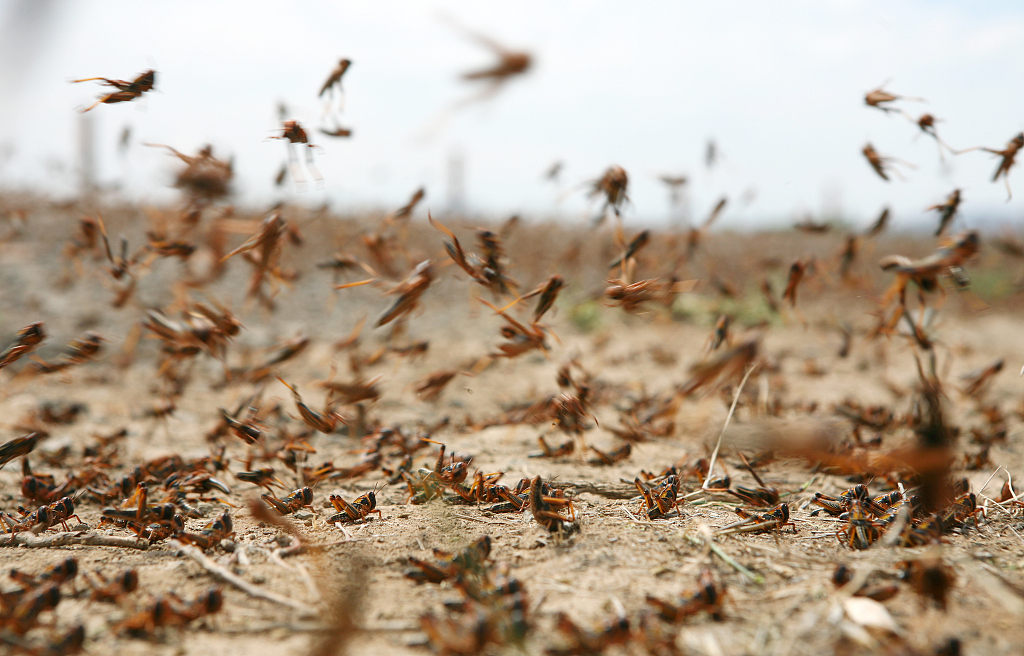Coronavirus-linked flight restrictions are hampering efforts to wipe out locust swarms on the verge of devastating crops in eastern Africa, the UN Food and Agriculture Organization (FAO) said.
The curbs have delayed deliveries of pesticides and, at the current rate of spraying, stocks in Kenya will run out within four days, Cyril Ferrand, FAO's head of resilience for Eastern Africa, said on Thursday.
"If we fail in the current (regional) control operations, because of lack of pesticides, then we could see 4 million more people struggle to feed their families," Ferrand said.
Locust numbers exploded late last year, encouraged by unusual weather patterns amplified by climate change, and swarms disbursed eastwards from Yemen, with Kenya, Somalia and Ethiopia the hardest hit countries.
The first invasion that terrorized farmers in a region where 20 million people struggle for food has given birth to a second wave of insects just as new-season crops are being planted.

"They are very active, very voracious, and very mobile," Ferrand said.
"If we don't have pesticides, our planes cannot fly and people cannot spray and if we are not able to control these swarms, we will have big damage to crops."
In Kenya, the FAO was now looking to secure pesticides from local sources, Ferrand said, should the delays continue.
The spreading of the new coronavirus has forced governments to close their borders, reducing cargo flights and disrupting global supply chains, including the production of pesticides in Europe and Asia.
An order of pesticides due to arrive in Somalia by the end of last month has been delayed, though Ethiopia managed to secure enough of the chemicals before cargo flights were cut back.
Meanwhile, a lockdown imposed in South Africa last week has made it difficult to secure the helicopters that are crucial for locust surveillance.
"We need to have mobility that is equivalent to the desert locusts, that's what helicopters give us," Ferrand said.
The FAO has secured about 111 million U.S. dollars of funding towards fighting the swarms. But that is 40 million dollars less than the organization sought and contributions have dropped off since mid-March, Ferrand said.
(All images via VCG)
(If you want to contribute and have specific expertise, please contact us at nature@cgtn.com)
Source(s): Reuters